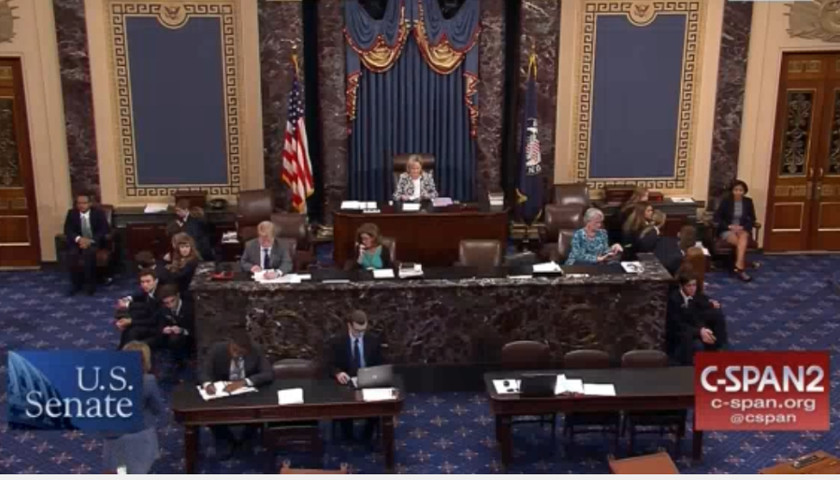The Republican-led Senate on Thursday rejected two symbolic measures to support U.S. intelligence agencies in the face of President Donald Trump’s clarifying statements on Russian interference in the 2016 presidential contest and the Kremlin’s continuing threats to U.S. elections.
The chamber’s No. 2 Republican, John Cornyn of Texas, objected to a bipartisan non-binding resolution backing intelligence reports on Russian election meddling and last week’s indictment of 12 Russian intelligence officers.
The resolution also urged full congressional examination of Trump’s summit with Russian President Vladimir Putin in Helsinki and called for full implementation of U.S. sanctions against Moscow.
Moments earlier, Kentucky’s Rand Paul objected to a similar Democratic resolution that added support for the special counsel in the Justice Department’s Russia probe, Robert Mueller.
Arizona Republican Jeff Flake, who co-authored the bipartisan resolution, said congressional action is needed after Trump “let down the free world [in Helsinki] by giving aid and comfort to an enemy of democracy” and “dimmed the light of freedom ever so slightly in our own country.”
“We should stand and be counted in defense of our democracy,” said Democratic Senator Chris Coons of Delaware, who crafted the resolution with Flake.
Speaking in support of the Democratic measure, Vermont independent Senator Bernie Sanders said, “If for whatever reason the president of the United States is not going to do what is right, Congress must do it.”
Cornyn argued the bipartisan resolution was unnecessary, saying Trump has corrected statements he made alongside Putin at Monday’s news conference in Helsinki.
“In Helsinki, he [Trump] was less than clear about that [Russian election meddling], but he came back and said that he misspoke, and reaffirmed his earlier position that, yes, the Russian government had attempted to interfere in the [2016] election,” Cornyn said.
He added, rather than voting on symbolic resolutions, Congress should pass further sanctions to deter Russian malfeasance in the future.
In objecting to the Democratic resolution, Paul accused colleagues of “crazy hatred of the president” and warmongering against Russia.
Supporters of both resolutions promised to bring the measures up for votes once again at a later date.
Hours earlier, on the other side of the Capitol, Republican representatives blocked a Democratic motion forcing the American interpreter at the Trump-Putin summit to testify before the House Intelligence Committee as to what the two leaders said behind closed doors.
The committee’s top Democrat, Rep. Adam Schiff of California, acknowledged the unprecedented nature of the motion, but said it was warranted because Trump “chose to go into that meeting alone. It appears that there were commitments made in that meeting that affect American national security interests.”
Republicans moved to dismiss the motion without comment, and it was tabled by a committee vote of 11-6.




